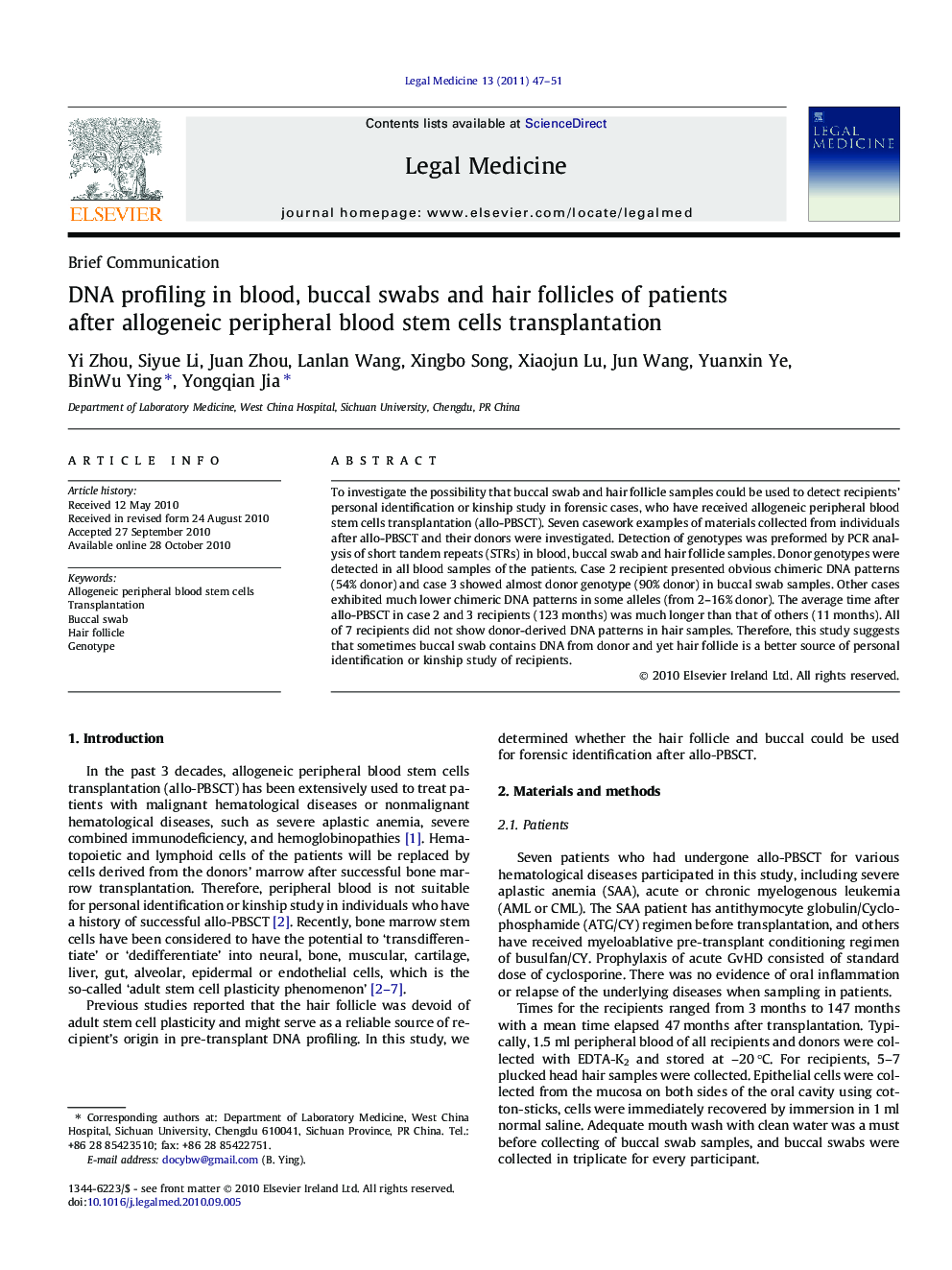| Article ID | Journal | Published Year | Pages | File Type |
|---|---|---|---|---|
| 103761 | Legal Medicine | 2011 | 5 Pages |
To investigate the possibility that buccal swab and hair follicle samples could be used to detect recipients’ personal identification or kinship study in forensic cases, who have received allogeneic peripheral blood stem cells transplantation (allo-PBSCT). Seven casework examples of materials collected from individuals after allo-PBSCT and their donors were investigated. Detection of genotypes was preformed by PCR analysis of short tandem repeats (STRs) in blood, buccal swab and hair follicle samples. Donor genotypes were detected in all blood samples of the patients. Case 2 recipient presented obvious chimeric DNA patterns (54% donor) and case 3 showed almost donor genotype (90% donor) in buccal swab samples. Other cases exhibited much lower chimeric DNA patterns in some alleles (from 2–16% donor). The average time after allo-PBSCT in case 2 and 3 recipients (123 months) was much longer than that of others (11 months). All of 7 recipients did not show donor-derived DNA patterns in hair samples. Therefore, this study suggests that sometimes buccal swab contains DNA from donor and yet hair follicle is a better source of personal identification or kinship study of recipients.
